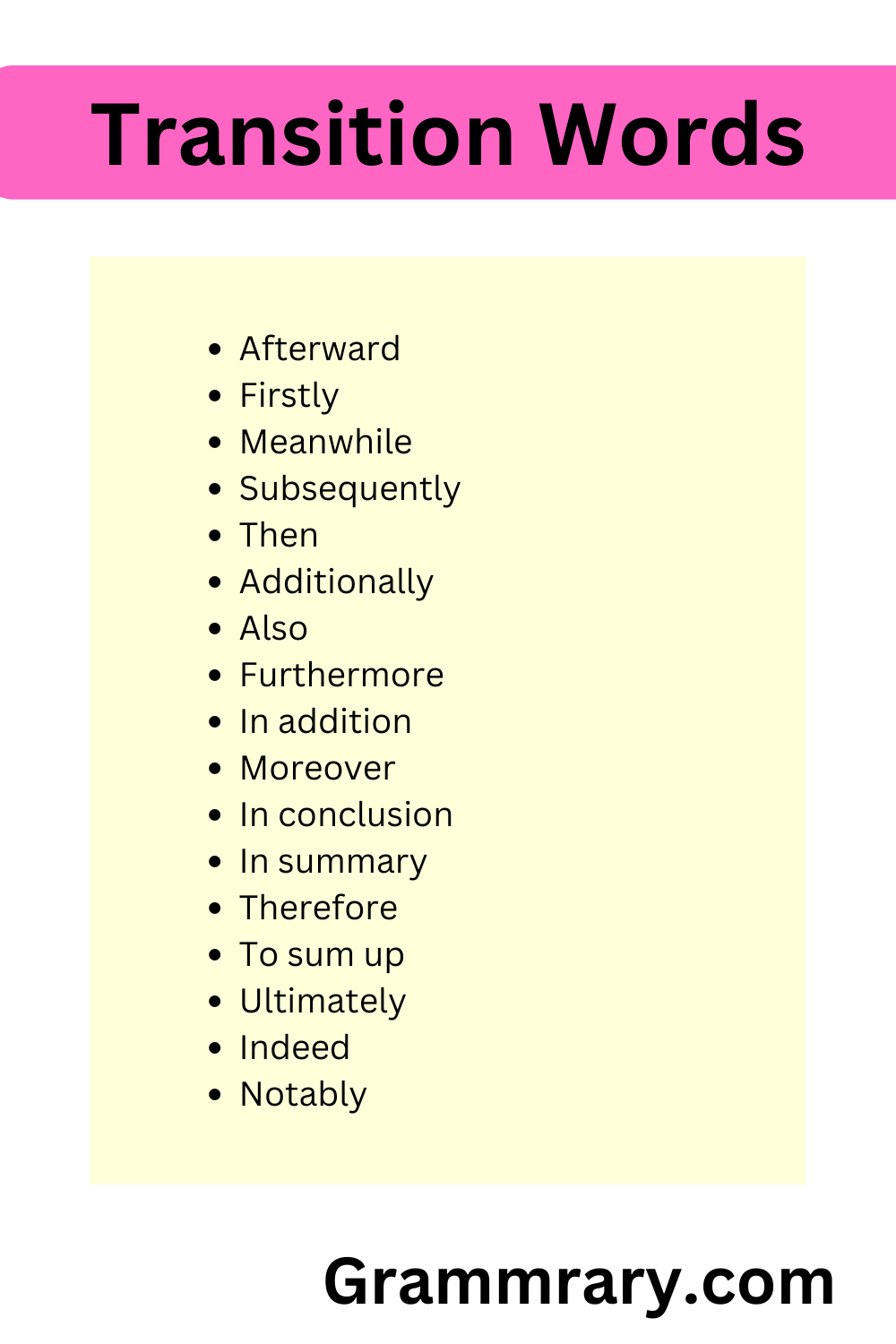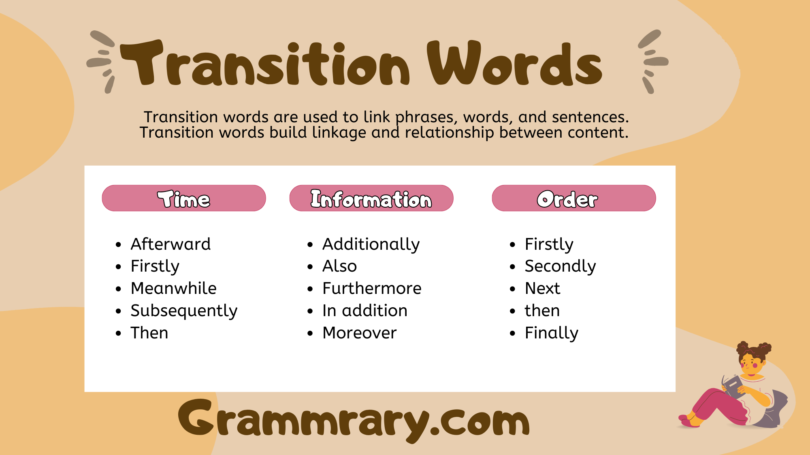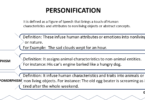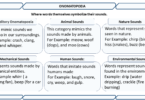What Are Transition Words?
Do you know the role of bridges? How important they are in transportation? You must be aware of the role of bridges in connecting routes. What about connecting ideas and concepts in language? Enhancing flow, emphasizing points, organizing clarity, and creating coherence. Here comes Transition Words.
Transition words are used to link phrases, words, and sentences. They build linkage and relationships between content. Their use in content is vital so that the content may not look disconnected or separated. They play an important role in clearly understanding what the writer is conveying.
Their function is to ensure smooth flow and linkage between ideas.
The function of Transition Word:
Transition words bring clarity, coherence, and organization in the language. They provide emphasis and create engaging content.
Transition Words are used for what?
These are used to represent:
- Time
- Comparison
- Details
- Cause and Effect
- Examples
- Order
- Conclusion
- Compare
- Emphasis
- Clarification
List of Transition Words:
Here’s a handy list of transition words, with what they represent:
To Show Time:
- Afterward
- Firstly
- Meanwhile
- Subsequently
- Then
Adding Information:
- Additionally
- Also
- Furthermore
- In addition
- Moreover
Showing Order or Sequence:
- Firstly
Secondly - Next
- then
- Finally
Provide Examples:
- For example
- For instance
- Such as
- Namely
- To illustrate
Conclusion:
- In conclusion
- In summary
- Therefore
- To sum up
- Ultimately
Emphasis:
- Above all
- Certainly
- Importantly
- Indeed
- Notably
Comparison:
- Alternatively
- Although
- Apart from
- At the same time
- But
- Conversely
- Equally
- Even so
- However
- In comparison
- In spite of
- Just as
- Likewise
- Nevertheless
- On the contrary
- On the other hand
- Otherwise
- Similarly
- Unlike
- Whereas
- While
- Yet
Clarification:
- In essence
- In other words
- Specifically
- That is to say
- To clarify
Cause and Effect
- As a consequence of
- As a result
- As a result of
- As long as
- Because
- Comes from
- Consequently
- Consequently
- Contributes of
- Due to
- For
- For the purpose of
- granted that
- Hence
- Hence
- In order to
- In view of
- Leads to
- Owing to
- Results from
- Since
- So accordingly
- Stems from
- Therefore
- Therefore
- Thus
- Thus
Evidence
- Again
- Also
- Also
- And
- as well as
- Besides
- But a
- By the same token
- Certainly
- Chiefly
- Finally
- Further
- Furthermore
- Identically
- In addition
- In addition to
- Including to be
- Moreover
- Namely
- Not
- Only
- Or
- Sure
- Then
- Too
- Truly
- Uniquely
Place
- Beyond to the left
- Here
- In the distance
- Opposite
- Over there
- There
- Under
Illustration
- Such as
- In this case
- For one thing
- For example
- In the case of
- Illustrated by
- As an example
- For instance
- In other words
- As revealed by
- An instance to show that
Opinion
- As fast
- As for me
- As I know
- I believe
- I feel
- I think if I’m not mistaken
- I think in my view
- I’d say that
- In my experience
- In my opinion
- It seems likely
- It seems to me
- What I mean is
Similarity
- Additionally
- As together
- As well
- Comparatively
- Correspondingly
- Furthermore
- Likewise
- Moreover
- Of course
- Similarly
Rules to use Transition Words:
- Don’t use the same transition word again and again.
- Make sure the transition word connects the ideas.
- Use according to the context.
- Position in the proper way.

Transition Words list







